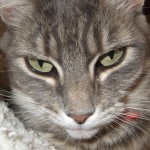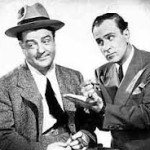I heard from an author who sent me her first chapter of an upcoming book, hoping I’ll endorse. Her comment, “Remember, it’s unedited. I use way too many “was” and “ly” words in my drafts,” made me think about my own self-editing journey. When I was a new writer, I too probably used a lot of passive language and modifiers. But as I practiced and improved my skills, I began to write better drafts. What are some ways to improve your first (or 2nd, 3rd, etc) drafts?
Writing Tip for Today: One huge benefit of writing a better (or tighter, cleaner) draft is that you may have less rewriting to do. I say “may” because during revisions, a writer must also think about structural issues, pace and flow. But if you are painting good word pictures as you draft, you may not need to overhaul so many sentences.
- Think cinematically. As always, I advocate thinking of your story as a movie in your mind. Writing as you imagine the movie will force you to get the charcter up and moving, making your story more dynamic.
- Be specific. Much of the time, writers use passive “was” or “ly” words because they aren’t being specific enough. What’s another verb for “He moved slowly?” How about “ambled,” “strolled,” “inched” or “edged?”
- Use simple past tense. Get rid of the was factor by eliminating gerund constructions. (was moving becomes moved.).
- Red flag general verbs: to be verbs, move, put, have, walk, look, sit are examples of very general verbs. One caveat: don’t bend over backwards to avoid ever using these verbs, but be aware of their generality and strive to give the reader a more accurate picture of what you see in your mind movie.
- Go without the ly. Remove all adverbs. Reread the text. Do you miss the ly words? Probably not. Doesn’t mean you never use an adverb. Just try without them.
- Avoid diminishers, enlargers and general words when possible. Diminshers: little, small, tad, bit, tiny. Enlargers: huge, very, really, lots. Generalities: thing, situation, circumstance, stuff.
- Resist the Urge to Explain. R.U.E. EX: She clenched her jaw in order to control her anger.
- Search and destroy It was and There was as sentence openers.
Try This!
Choose two of the above pointers to focus upon. Using a draft, circle all the spots where you’ve used passive language or lys, etc. Next writing session, concentrate on visualizing your scene and try to implement one of the areas you focused on.





What a practical list! Thanks for the great tips.
Linda here–you’re welcome! Tell your friends! All the Best, Linda
Thanks, Linda! These tips are sooo helpful. Keep ’em coming!
~Debra